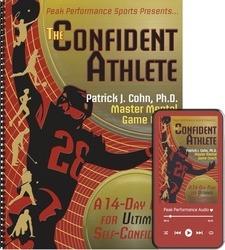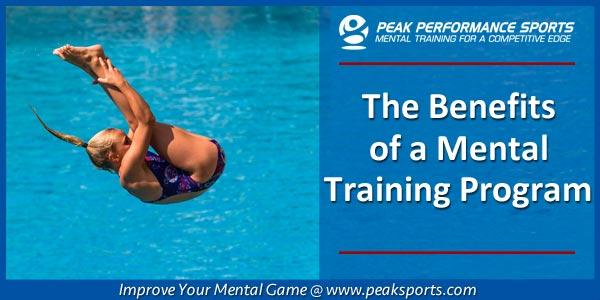Benefits of Mental Preparation For Athletes
With the 2016 Rio Olympics around the corner, sport psychology is receiving increased attention.
It’s no longer a secret that the majority of Olympic athletes utilize mental training as a regular component of their training regimen.
Olympic athletes understand the importance of having their body and mind running at optimal levels during intense competition.
Take a moment to think about a competition or game where you were physically ready to compete but your mind was ill-prepared and battled you even before the event kicked off…
Maybe you were battling negative thoughts, lack of confidence, an inability to focus, overwhelming anxiety or a fear of failure… Whichever the case, your body and mind were not acting as a cohesive unit…
What was the result of that performance? Do you want to erase it from your mental archive?
Now think of how that result would have differed if your body and mind acted together as one dynamic force.
Olympic athletes train for four years preparing for this one competition and, for that reason, leave nothing to chance… Especially their mental game.
Olympic hopeful and platform diver, Sarah McCrady, is readying herself Olympic trials in hopes of earning a spot on the US team.
Platform diving is a complex and difficult sport. McCrady starts each dive 33 feet about the water, travels more than 30 miles an hour in the air while performing a series of acrobatic moves then plunges into a pool.
McCrady admits there is definitely an element of fear in competitive diving that needs to be managed in order to be successful in the sport.
McCRADY: “Honestly, I do still get scared jumping from it. When I walk to the end [of the platform], I’m like, calm down, you’ve done it so many times. But it is scary looking down and seeing how high it is you’re going to jump off of.”
Not only does a diver need to manage fear, they need to deal with the discomfort that comes with slamming their body through the water at such high speeds.
McCRADY: “It hurts your wrists, because you enter the water with your hands grabbed like this (in front of you) and locked out. So it hurts your wrists a little bit, it hurts your shoulders and elbows a little bit.”
McCrady believes that mental training is not only helpful in order to compete at a high level, it is absolutely necessary.
McCRADY: “It’s like a 90 percent mental sport. It’s a 10 percent physical sport. [To be successful], it’s all the mental training with a sports psychologist all the time. [You need to] train the mental side of it… Because my body can do the dives; I know my body can do the dives. It’s just, can my brain get my body to do those dives?”
So, it’s not just mental training that separates Olympians from all the rest; it’s the amount of mental training they schedule into training regimen.
How to develop a mental training program:
There are 3 steps to developing a mental training program:
1. Assess your current mental game. What are your mental strengths and weaknesses? (Contact us for a one-page test we’ll email you).
2. Select 1-2 mental skills that would benefit your overall performance the most. Increased confidence? Managing fear of failure? Improving focus? Taking your practice to competition? Trust in your skills?
3.Create a training plan. How will you go about developing these mental skills? How much time will you dedicate to mental training? Will you seek the expert advice from a mental training or mental game coach? (Contact us for program options).
Don’t leave your mental game to chance… It does NOT mean you are weak if you work with a mental game coach! It only means that you want to improve all facets of your performance. Get your mind and body on the same page:
Mental Training Programs for Athletes
Related Sports Psychology Articles
- How the Pressure Derailed Nathan Chen at the Olympics
- Why Olympic Athletes Use Routines
- Shiffrin: The Mindset of an Olympic Champion
*Subscribe to The Sports Psychology Podcast on iTunes
*Subscribe to The Sports Psychology Podcast on Spotify
Download a free sports psychology report to improve your mental game!
Learn more about our one-on-one mental game coaching.
The Confident Athlete

“The Confident Athlete” consists of 2 audio programs that include 14 days of confidence fueling exercises and a simple to follow workbook that guides you through the 14 days, helps you apply the strategies, and customizes the exercises to your personal needs.
Let me help you put a stop to the confidence leak. You can learn to have greater levels of confidence in competition than you do in practice by identifying the specific ways you undermine your own confidence and how to convert your practice confidence into COMPETITIVE CONFIDENCE.
“The Confident Athlete” is a ground-breaking system to teach you how to think like a champion and have ultimate self-confidence every time you step on the playing field, court, track, or course. The confident athletes was developed for any athlete – junior to professional –that wants to gain confidence. However, coaches and sports parents can learn how to teach others to perform with ultimate confidence. Use my program if you want to bust a slump or just wanting higher or more consistent levels of self-confidence.


Looking to Assess mycurrent mental game.
What are my mental strengths and weaknesses?
(Contact us for a one-page test we’ll email you).
Hi Ranjan, what email address would you like us to send the one-page test to?
Hello, great information. My so wrestles and he is about to prepare for regionals.
I would love for you to email me the 1-page test.
Thank u
Hi Paula, you can email us and request to have her send you the 1-page test.